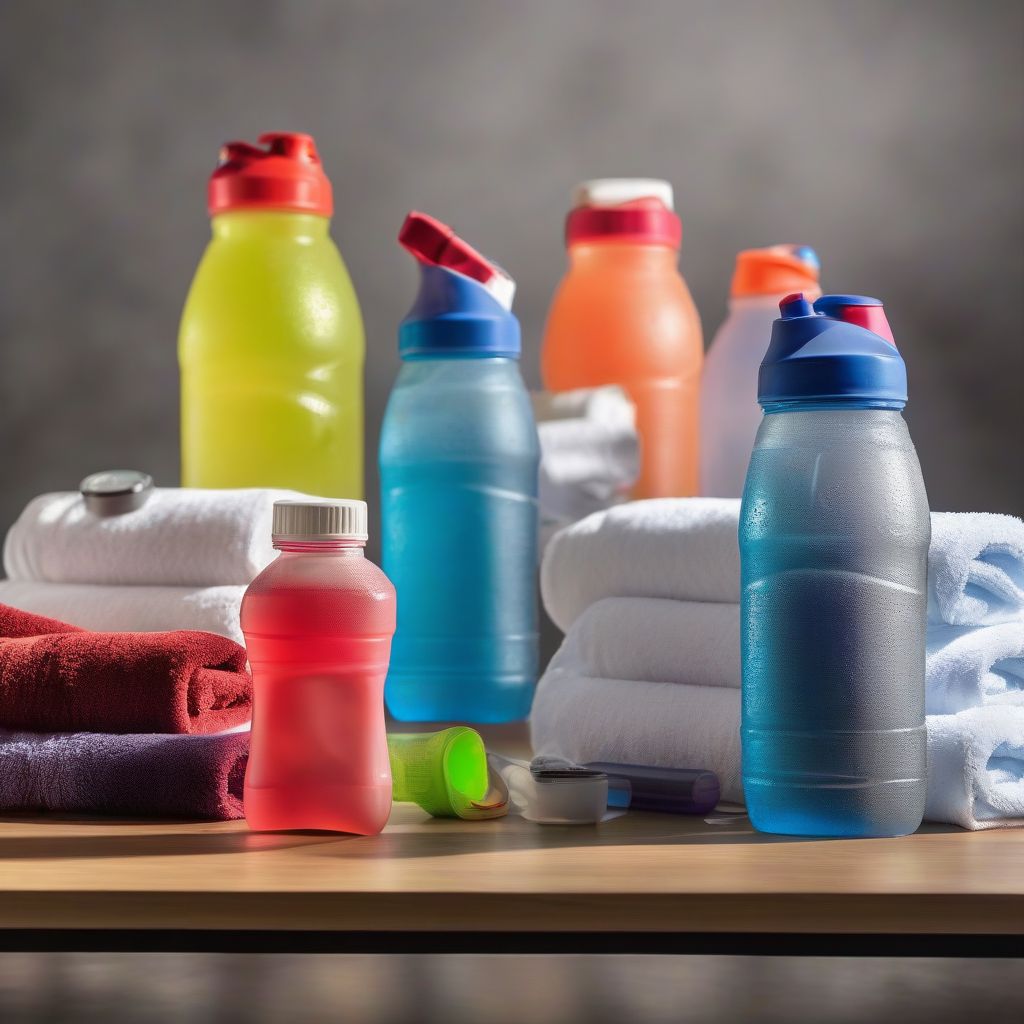Picture this: you’re crushing your workout, feeling energized, and then bam—fatigue hits you like a wall. Your muscles feel heavy, your head pounds, and suddenly, that workout seems impossible to finish. What happened? While there could be several culprits, one often overlooked factor is dehydration.
As a certified nutritionist and meal prep coach, I’ve seen firsthand how proper hydration can make or break a workout. Staying hydrated isn’t just about drinking water during your workout; it’s about creating a hydration strategy that starts before you even lace up your shoes.
This comprehensive guide will provide you with evidence-based tips and practical strategies to help you stay hydrated and optimize your athletic performance.
Why is Hydration So Important During Workouts?
Before we jump into the tips, let’s understand why hydration is crucial for peak performance. When we exercise, our body temperature rises, and we lose fluids through sweat. This fluid loss can lead to dehydration, which negatively impacts our physical and mental performance.
Here’s how dehydration can affect your workouts:
- Decreased Endurance: Dehydration reduces blood volume, making it harder for your heart to pump oxygen and nutrients to your muscles. This can lead to fatigue, reduced endurance, and shortened workouts.
- Muscle Cramps: When you’re dehydrated, your electrolyte balance gets disrupted, making you prone to muscle cramps and spasms.
- Overheating: Sweating is your body’s natural cooling system. Dehydration makes it harder for your body to regulate temperature, putting you at risk of heat exhaustion or heat stroke.
- Slower Recovery: Dehydration can delay muscle recovery, increase muscle soreness, and impact your overall recovery process.
Tips to Stay Hydrated During Your Workout
Now that you understand the importance of staying hydrated, let’s dive into actionable tips to keep you performing at your best:
1. Pre-Workout Hydration is Key
Many people make the mistake of waiting until they feel thirsty during a workout to start hydrating. But here’s the catch: thirst is a sign that you’re already mildly dehydrated.
The Fix: Aim to drink 17-20 ounces of water 2-3 hours before your workout. This helps you start your workout well-hydrated and gives your body enough time to absorb the fluids.
2. Listen to Your Body and Drink When Thirsty
While pre-workout hydration is crucial, it’s also essential to pay attention to your body’s signals during your workout. Thirst is a natural indicator that your body needs fluids.
The Fix: Keep a water bottle handy throughout your workout and take regular sips. Don’t wait until you’re extremely thirsty.
3. Consider Workout Intensity and Duration
The amount of fluid you need to drink during a workout varies depending on the intensity and duration of your exercise.
The Fix: For workouts longer than 60 minutes or high-intensity sessions, consider a sports drink that contains electrolytes. Electrolytes, like sodium and potassium, are lost through sweat and help your body absorb and retain fluids.
4. Factor in the Weather
Hot and humid environments can significantly increase sweat rates, leading to faster dehydration.
The Fix: On hot or humid days, start your workout well-hydrated and increase your fluid intake. You might even need to drink more than you think you need.
5. Don’t Forget Post-Workout Replenishment
Rehydrating after your workout is just as crucial as pre-workout hydration. After exercising, your body needs to replenish the fluids and electrolytes lost through sweat.
The Fix: Aim to drink 16-24 ounces of water or a sports drink for every pound of body weight lost during your workout.
 Sports Drinks
Sports Drinks
[amazon bestseller=”sports-drinks”]
Signs of Dehydration to Watch Out For
Recognizing the signs of dehydration early on can help you prevent severe complications. Here are some common symptoms to be aware of:
- Increased thirst
- Dry mouth and tongue
- Headache
- Dizziness or lightheadedness
- Fatigue
- Dark yellow urine
- Muscle cramps
If you experience any of these symptoms, stop exercising immediately, move to a cool place, and drink water or an electrolyte-rich beverage.
The Bottom Line: Hydrate Smart, Train Smarter
Proper hydration is the cornerstone of successful workouts and overall well-being. By following these tips and listening to your body, you can stay hydrated, optimize your athletic performance, and feel your best. Remember, consistency is key. Make hydration a non-negotiable part of your daily routine, not just when you’re exercising.
Do you have any tried-and-true hydration tips? Share them in the comments below!
